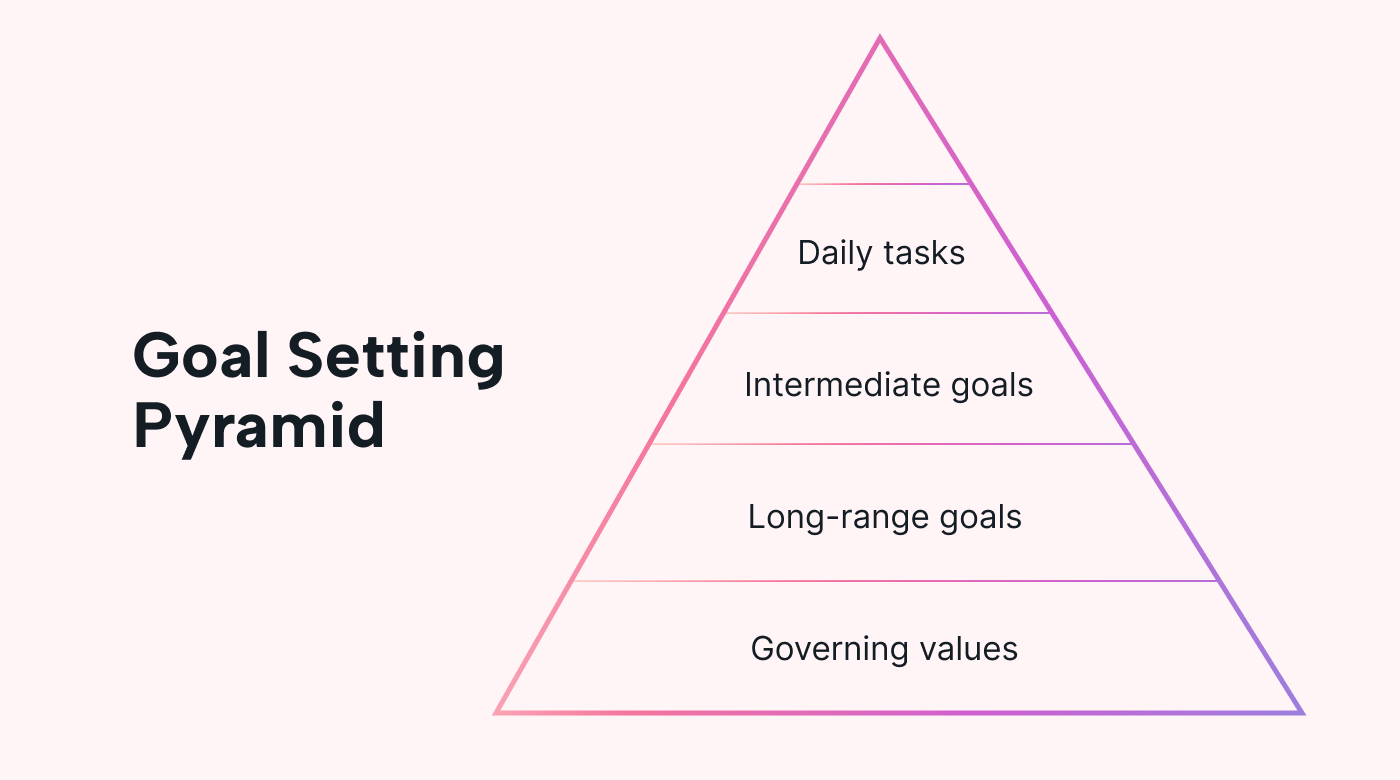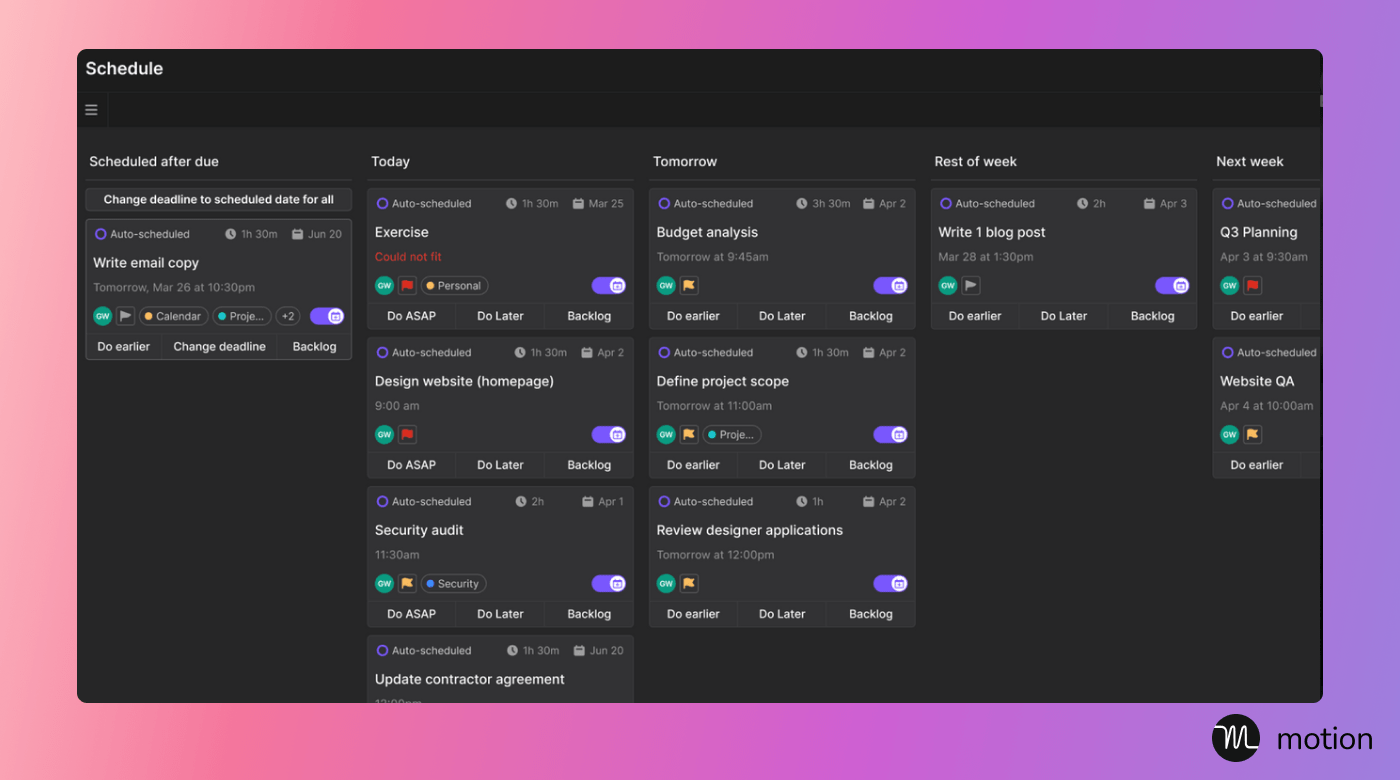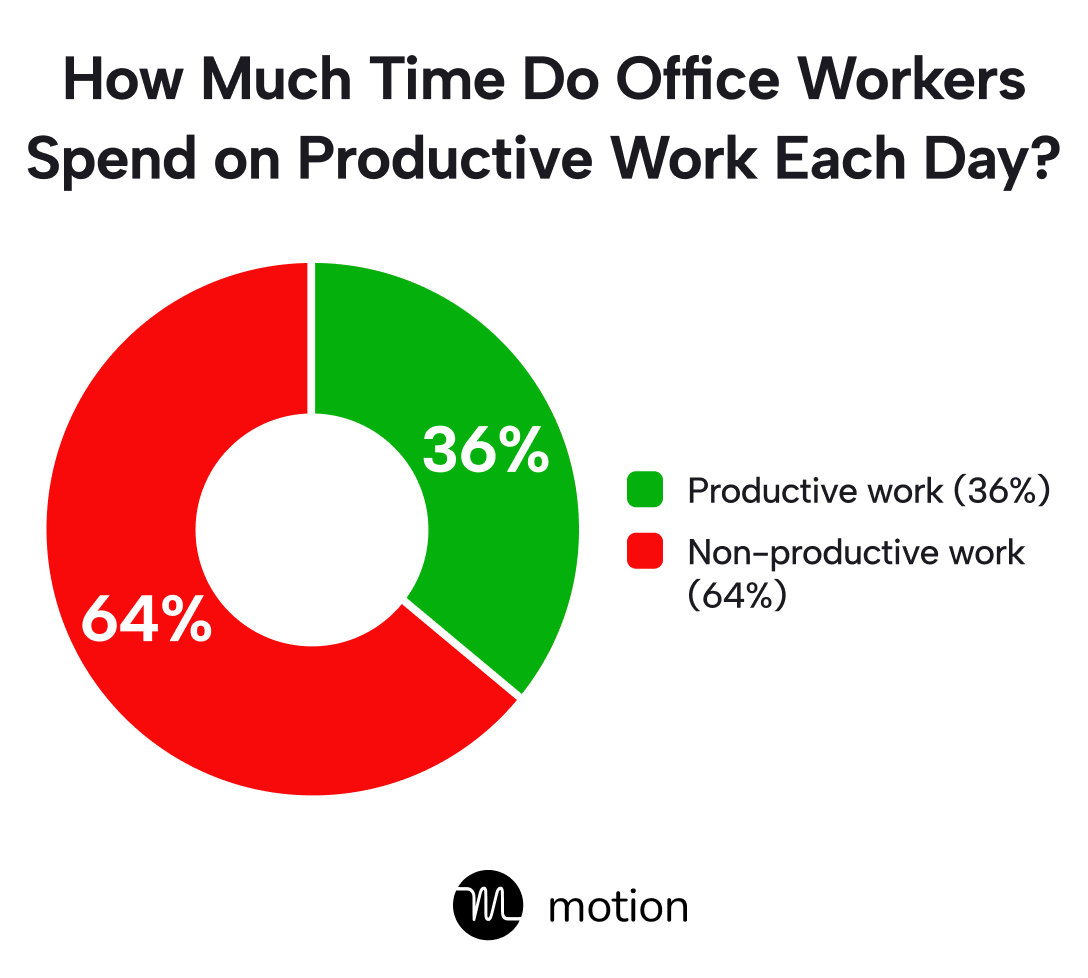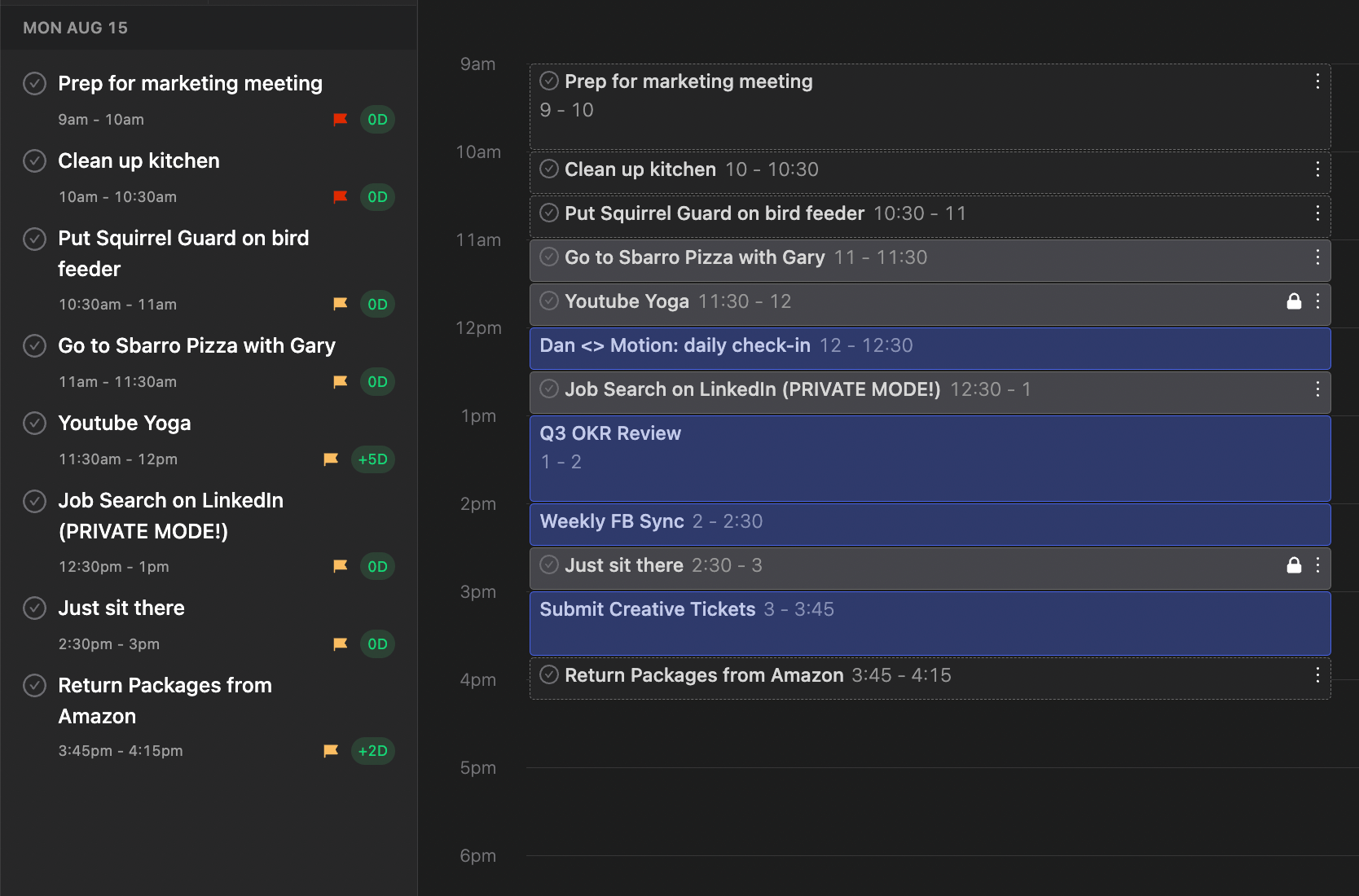Have you ever noticed how some people seem to be able to accomplish so much more in the same 24 hours than others?
They manage to hit all their deadlines, tackle big projects, and still have time for family and hobbies. Meanwhile, you're struggling to keep up with your to-do list, agonizing over not having enough time.
The secret to their success? Time management.
In today's fast-paced world, effective time management is more important than ever. Whether you're a student, a professional, or an entrepreneur, managing your time well can make a world of difference.
In this article, we'll explore why time management is so critical, share the benefits of good time management, and provide practical tips to help you improve your time management skills.
So if you're ready to make the most of every minute, keep reading to discover why time management is the key to success.
What is time management, and why does it matter?
Time management is the practice of planning and organizing your time effectively to achieve your goals. But good time management is more than just ticking off to-do lists — it's about being intentional with how you spend your time so that you can achieve the goals you set for yourself.
Why is time management important?
Time management is that elusive skill many of us strive to achieve but few master. According to a 2021 time management study, 82% of people don't have a time management system, and 25% just deal with whatever seems most important at the time. Sound familiar?
Many of us go through life and work tackling whatever task or emergency that arises, never realizing that we're not making the most of the precious time we have.
This mentality, however, leads to a pattern of procrastination, prioritizing non-productive work, and losing control over your tasks. In fact, office workers say that they spend 64% of their workday doing non-productive work instead of focusing on important tasks.
That's where the importance of time management comes in.
Being good at time management means knowing how to prioritize daily tasks, set realistic deadlines, and remove distractions to accomplish more in less time. While these skills may seem trivial, mastering them can lead to a multitude of benefits.
With better time management comes enhanced productivity, greater success in both your personal and professional life, and a more satisfying work-life balance. Efficiently using your time can help you unlock new opportunities, accomplish your goals, and ultimately have a more fulfilling life.
Poor time management vs. good time management
Proper time management brings numerous benefits, but just how detrimental can poor time management be?
Imagine that a co-worker spends the first hour of their workday scrolling through social media and checking their personal emails.
As the day goes on, they constantly switch between tasks, taking frequent breaks and not following a schedule.
By midday, they feel overwhelmed and are scrambling to finish an assignment that's due at the end of the day. Ultimately, they don't meet the deadline, and their lack of productivity affects the entire team. This means others have to pick up the slack.
Clearly, there’s nothing good going on here.
Effective time management skills, however, can have a positive impact on your work performance and mental health.
But, let’s say the co-worker in this scenario used simple time management strategies, like time blocking, where they’d schedule their day into blocks of time. This could have allowed them to more effectively manage their time and complete their responsibilities.
A good example of this outcome is Sparkmate, a product development company that uses Motion’s AI tool to plan tedious tasks.
Motion helps Sparkmate schedule and prioritize important tasks, allocate time for breaks, and minimize distractions through automation. As a result, Sparkmate employees can focus on essential tasks during their most productive hours and finish their work faster.
Ultimately, good time management is key to being successful and keeping the peace in the workplace.
10 benefits of time management
Now let's dive into the 10 benefits of good time management for teams and office workers to see how it can positively impact both your professional and personal life.
1. Greater productivity and efficiency
Strategic time management means getting more done in less time. Planning and prioritizing your tasks help you finish your work earlier, which means you'll not only be able to get more done, but you'll also have room to take on new projects and other challenges.
 |
2. Less stress
Feeling stressed out and overwhelmed at work is an all-too-familiar feeling for many employees.
Studies conducted by the American Institute of Stress report that nearly 80% of workers surveyed say they feel stressed while working, half say they need tangible techniques to manage this stress, and 42% say they see their co-workers suffering because of stress.
And while there are a number of factors contributing to stress, good time management can help you manage and even eliminate a significant source of undue tension and anxiety.
It all comes down to having greater clarity, visibility, and control. If you can approach the day, week, month, and even quarter, with a mapped-out plan complete with timely deadlines and scheduled tasks, the chaos becomes ordered. With this structured approach, you can focus on only what needs to get done.
You'll be able to take a deep breath, knowing that you have everything under control.
3. Less procrastination
Let's face it — we've all been guilty of procrastinating. In fact, a whopping 88% of workers admit to procrastinating for at least an hour every day. And unfortunately, that's a real productivity killer.
Luckily, though, good time management can help you kick that habit to the curb. A clear plan and well-defined steps to follow will help you minimize distractions and meet deadlines with ease — with no more last-minute scrambles and frantic deadline chases.
4. Improved work quality
Work smarter, not harder. We've all heard this age-old advice, but how do we put it into practice?
Mastering time management can help you devote your energy and attention to the tasks that matter most. Instead of rushing to complete assignments, you can actually take the time to work on projects and allocate the necessary resources to produce high-quality work.
Employees agree — and already know this to be a benefit of effective time management, among many others. Data compiled by Timewatch on time management shows that:
- 90% agree time management increases productivity
- 86% feel that it improves task focus
- Additionally, 74% see better time management affecting workplace relationships in a positive way
5. Better decision making
You may have heard of data-driven decision making — but what about decision-making led by time management?
The two are intrinsically tied together.
See, when your time is mapped to actions and tasks, you have a clear and transparent sense of direction. This helps you weigh your options and make informed decisions faster because you can distinguish between “urgent,” “important,” and “non-essential.”
With a clear picture of your priorities and deadlines, you can quickly and accurately identify which tasks are priorities so that you make the right choices at every turn.
 |
Effective time management can do wonders for your work relationships by helping you build a more organized and reliable workplace.
As we saw earlier, 74% of employees know that when they manage their time better, it helps them complete their tasks and gives their colleagues a sense of knowing that their co-workers are “on it!”
Additionally, timely task delegation given to the correct individuals can help build individual and team competency. When everyone can focus on their strengths, it creates a more collaborative, productive, and harmonious work environment.
7. Improved reputation/image
Your professional reputation is the cornerstone of your success, and good time management helps you build a positive image as a reliable and confident professional.
Consistently meeting deadlines and producing high-quality work shows your colleagues and clients that you are dedicated, skilled, and trustworthy.
8. More opportunities for growth
Good time management skills open up new doors for career advancement and personal growth. When you are in control of your schedule, you can allocate time for learning new skills, networking, and pursuing your passions.
By investing in yourself, you become better equipped to take on new challenges and responsibilities, which leads to more career opportunities.
9. More time for other activities
Do you ever feel like there isn't enough time in the day to do everything you want to do? Effective time management skills help you prioritize your tasks and responsibilities to free up time for the things you truly enjoy.
Whether it's reading a book, hiking, playing a sport, or just relaxing, having more extra time for these activities helps you to avoid burnout and allows you to recharge your batteries.
10. Work-life balance
Many of us have a lot on our plates these days, and work and life can easily become a blur. Proper time management is the key to achieving a work-life balance.
By taking control of your time, you can prioritize your responsibilities, set boundaries, and make room for the things that make you happy. This can lead to a more fulfilling and satisfying career and personal life — without you feeling like you're sacrificing one for the other.
6 tips for better work and life time management
We know time management is easier said than done, so if you find yourself struggling to manage your time, try the following six tips to help you regain control and stay organized.
1. Set clear goals and priorities
Throw away that never-ending to-do list. Start by identifying your most important tasks and goals for the day and how and when you plan to achieve them. Be specific about what you want to accomplish because the more specific you are, the easier it becomes to put thought into action.
 |
It's also helpful to set professional goals that you want to achieve in the long term to help you stay focused and motivated during the short term. These goals should be specific, measurable, and achievable so you have a clear understanding of what to do every day to reach them.
2. Break big tasks into smaller ones
Big tasks can be daunting. So break them down. By dividing complicated tasks into smaller, more manageable parts, it becomes easier to tackle them one at a time in a structured way.
You'll know where to start and what to focus on without being overwhelmed by the enormity of the task as a whole. This helps you feel in control and productive while you make steady progress. Plus, whenever you complete a mini-task, the sense of accomplishment you'll feel will help motivate you to keep going.
3. Be honest about the time you need (including breaks!)
This is a big one.
When it comes to effective time management, be honest with yourself about how much time you really need. Remain realistic about the time it'll take to complete each task — and that includes accounting for regular breaks and downtime.
See, our brains are wired to be “monotaskers,” says neuropsychology Cynthia Kubu, PhD. That means we can only get one thing done at a time — and everything suffers if we try to multitask.
What’s more, the brain needs breaks to keep blood flowing and attention focused. Again, we’re only really hardwired to maintain a focused attention span for a total of 15 to 20 minutes! Now, of course, that depends on other factors like the environment, subject matter, and even sheer will.
And that’s exactly why giving your brain the breaks it needs to stay fresh will help you stay focused for longer.
4. Find your most productive time
Consider your most productive time of the day — knowing this is essential to planning your day and accomplishing the most you can.
For some, that means getting things done bright and early, because they’re early risers. Others feel more focused and productive right in the late afternoon to early evening.
The majority of the population runs on a sleep schedule or chronotype called the “bear.” This means they sleep between 11 pm and 7am, are the most productive in the morning, need lunch at around midday, and dinner in the mid-evening, around 6 or 7 pm.
Sound familiar? That makes sense because our modern workdays are structured around waking or daylight hours.
But that doesn’t mean this schedule of productivity, rest, and energy is right for everyone. So it’s essential that you discover your optimal time of productivity.
Schedule your most important tasks during your most productive time to take advantage of that time. And don't forget to use a calendar or planner to keep track of deadlines, appointments, and meetings. Planning ahead will help you avoid missing important tasks and reduce the stress of having to complete last-minute work.
5. Minimize distractions
It takes the average person 23 minutes and 15 seconds to get back to a task after a distraction. That is why minimizing distractions is crucial to staying productive.
Limit checking your phone or emails to a specific time, turn off notifications when possible, and put on earphones to block out that chatty co-worker. Removing these distractions can help you stay focused and get more done throughout the day.
6. Use time and project management tools
Time and project management tools are lifesavers when it comes to staying on top of your tasks and deadlines. They help you schedule tasks, track your progress, set reminders, and better collaborate with team members.
You can also save time, stay organized, and manage your workload more efficiently with automated to-do lists and real-time updates.
If you're looking to up your time management game, you can even opt for an AI-powered time and project management platform like Motion, which streamlines your workflow by automating traditional time management tasks so you have more time for the important stuff.
 |
How Motion helps you master time management through AI
Time management isn't easy — it takes discipline and dedication. But luckily, Motion is here to help. Our AI-powered platform is designed to help you take control of your workflow, prioritize important tasks, and get more done in less time.
We use algorithms to analyze your tasks and schedule to suggest the best way to do them and automatically shift priorities when new tasks come up. We also provide insights into your productivity patterns so that you can improve your time management skills over time.
You can also communicate with your team members in real time, share project updates, and receive notifications all in one place. This feature helps ensure that everyone is on the same page, and it also helps prevent miscommunication and delays.
Spend less time worrying about how much work you need to put into something and more time feeling empowered to make it happen. Seize the day with Motion!







